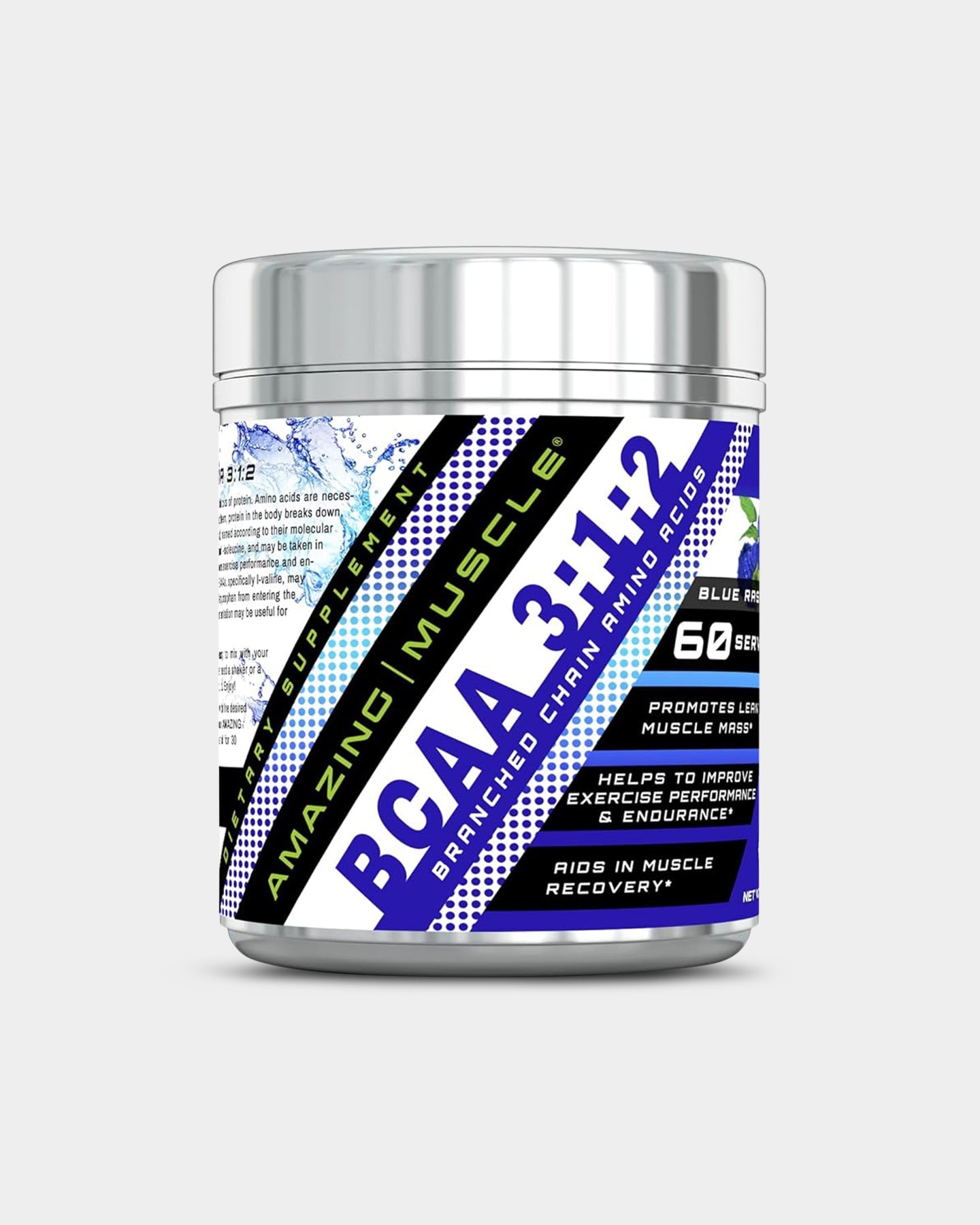Top 5 Effective Ways to Use BCAA for Improved Workout Performance in 2025
As we step into 2025, the importance of Branch Chain Amino Acids (BCAA) in enhancing workout performance has never been more significant. These essential nutrients—comprising L-Leucin, L-Isoleucin, and L-Valin—play a crucial role in muscle growth, recovery, and overall fitness. With the rise of innovative fitness trends and advancements in sports nutrition, BCAA supplementation can help athletes and fitness enthusiasts optimize their workouts and achieve their fitness goals more efficiently. In this article, we’ll delve into the top five effective ways to use BCAA for improved workout performance, shedding light on their benefits, dosage, and best practices for incorporation into your routine.

1. Optimal BCAA Dosage for Enhanced Fitness Results
Understanding the right BCAA dosage is vital for maximizing its benefits in muscle building and recovery. Generally, it’s recommended to consume between 5-10 grams of BCAA before or after workouts to support protein synthesis and reduce muscle catabolism. However, individual needs may vary based on workout intensity and duration, making personalization essential.
For instance, those engaged in high-intensity training or bodybuilding may benefit from higher dosages closer to 10 grams. On the other hand, casual exercisers may stick to the lower end of the dosage spectrum. It’s important to listen to your body and consult with a nutritionist or fitness expert to find the optimal amount suited to your fitness regime.
Incorporating BCAA-rich foods into your diet can also bolster your intake. Foods like chicken, eggs, and dairy are excellent sources of these amino acids, enhancing your overall nutrition while supporting muscle recovery and energy levels.
Understanding BCAA Absorption Rates
BCAA absorption rates can significantly impact their effectiveness. Consuming BCAAs in liquid form, such as an intra-workout drink, ensures rapid absorption, allowing the body to utilize them almost immediately during strenuous exercise. This quick-response feature makes them particularly beneficial when taken before workouts.
Timing Your BCAA Intake
The timing of your BCAA intake can influence your workout performance. Taking BCAAs about 30 minutes before a workout can help increase your energy levels and enhance endurance, while post-workout consumption aids in muscle recovery and minimizes soreness. Experimenting with timing can lead to optimized results based on personal performance metrics.
2. Utilizing BCAA for Muscle Recovery and Regeneration
Muscle recovery is a critical aspect of any fitness regimen, and BCAAs can provide significant benefits in this area. These amino acids play a vital role in reducing muscle protein breakdown and enhancing muscle protein synthesis, key processes involved in recovery.
By decreasing muscle soreness post-exercise, BCAAs enable athletes to maintain a consistent training schedule without prolonged downtime caused by muscle fatigue. Studies show that those who supplement with BCAAs report lower levels of delayed onset muscle soreness (DOMS), allowing for quicker return to training and improved overall performance.
Implementing BCAA Supplements Post-Workout
Many athletes prefer to consume BCAA supplements immediately after their workout session to promote muscle regrowth and recovery. This quick application of BCAAs ensures that the muscles have immediate access to the necessary nutrients required to rebuild and repair effectively.
Combining BCAA with Other Nutrients
For optimal recovery benefits, combining BCAAs with carbohydrates can enhance muscle recovery further. The presence of carbs can stimulate insulin release, which not only aids in nutrient absorption but also promotes muscle repair. Consider blending your BCAA drink with a carbohydrate source like a sports drink or banana for maximum efficacy.

3. Enhancing Workout Performance with BCAAs
BCAAs are not just about recovery; their ability to enhance workout performance is one of the most appealing benefits. Studies indicate that athletes who supplement with BCAAs experience increased endurance and reduced fatigue during high-intensity workouts.
This increased endurance can be attributed to BCAAs’ role in energy production during prolonged exercise. Rather than relying solely on glycogen stores, BCAAs can be utilized for energy, extending workout duration and promoting better performance outcomes.
Using BCAAs for Pre-Workout Energy
Incorporating BCAAs before workouts is a game-changer for many fitness enthusiasts. Utilizing these amino acids as a pre-workout supplement can help individuals stay energized through their sessions, allowing them to push their limits further than ever before.
Monitoring Energy Levels During Training
During intensive workout regimes, it’s important to observe how BCAA supplementation affects your energy levels. Keeping track of your performance and energy fluctuations will help determine the right timing and dosage for your needs. Personalization is key to achieving optimal results.
4. BCAAs and Weight Management
For those focused on weight management, BCAAs can prove to be valuable allies. Research suggests that BCAAs play a role in reducing body fat while helping to maintain lean muscle mass. This balance is crucial for individuals aiming for effective fat loss without sacrificing muscle, which can be a common struggle in many diet plans.
Supplementing with BCAAs during calorie deficits can help preserve muscle mass, minimize metabolic slowdown, and support better body composition outcomes. This effect is especially beneficial during cutting phases in bodybuilding or when trying to reduce fat while maintaining physical performance.
The Impact on Appetite Control
Interestingly, BCAAs may also influence appetite control and cravings. Some studies have shown how BCAA supplementation can aid in reducing the desire for unhealthy foods, allowing for more disciplined eating habits. Incorporating them into a weight management plan can thus enhance overall dieting success.
Utilizing BCAAs for Lean Muscle Preservation
Evidence supports the idea that BCAAs can effectively prevent muscle wasting during weight loss. This preservation of lean muscle is essential for maintaining a healthy metabolism and optimal body composition, proving advantageous for anyone looking to improve their health and fitness levels.
5. Choosing the Right BCAA Product for You
With numerous BCAA products available in the market, selecting the right one can significantly impact your experience. It is crucial to consider the amino acid ratios, ingredient quality, and additional benefits offered in the formulation. Most experts recommend a 2:1:1 ratio of Leucine, Isoleucine, and Valine for optimal results in muscle recovery and energy production.
Evaluating Product Quality
When choosing a BCAA supplement, always prioritize those that use high-quality ingredients. Look for products that are free from fillers, artificial ingredients, or unnecessary additives. Customer reviews and third-party testing can help evaluate product integrity and effectiveness.
Considering Special Dietary Needs
Vegans and vegetarians should specifically look for plant-based BCAA options to meet their dietary restrictions. Products labeled as vegetarian BCAA can be suitable for those avoiding animal products while still providing the essential amino acids required for optimal performance and recovery.
Conclusion: Enhance Your Fitness Journey with BCAAs
Incorporating BCAAs into your fitness regimen can significantly enhance workout performance, improve recovery times, and facilitate weight management. Understanding how to optimize BCAA intake through proper dosage, timing, and product selection can lead to noticeable improvements in your training and overall health. As fitness continues to evolve in 2025, BCAAs will undoubtedly remain a staple in sports nutrition, helping individuals reach their fitness goals with efficiency and effectiveness. To dive deeper into BCAA benefits, check out these additional resources for a comprehensive understanding.
Q&A Section
What are the primary benefits of taking BCAAs?
BCAAs are essential for muscle recovery, reducing fatigue during workouts, and promoting muscle growth. They can also assist with weight management by preserving lean muscle mass.
When is the best time to take BCAAs?
Many find it effective to take BCAAs approximately 30 minutes before workouts and immediately after to maximize benefits in energy levels and muscle recovery.
Are there any side effects associated with BCAA supplementation?
While BCAAs are generally safe, excessive intake can lead to potential side effects such as gastrointestinal discomfort. It’s always advisable to adhere to recommended dosages.
What should I look for in a BCAA product?
Seek high-quality products that specify the amino acid ratio, contain no unnecessary fillers or additives, and align with your dietary preferences, such as vegan options if needed.
Can BCAAs help with muscle soreness?
Yes, BCAAs effectively reduce delayed onset muscle soreness (DOMS), facilitating quicker recovery and allowing athletes to resume training sooner.
